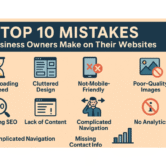
Free Website Audit – What You’ll Learn & How It Helps Skyrocket Performance (2024 Guide)
Introduction to Website Audits
What Is a Website Audit?
A website audit is a full health check of your online presence. Think of it as a diagnostic report that highlights what’s working, what’s broken, and what can be improved on your site. It’s the first step toward optimizing your website for performance, user experience, and search engines.
Why Every Site Needs Regular Audits
Web trends evolve fast. Google updates its algorithm hundreds of times each year, and user expectations change just as quickly. Regular website audits ensure your site isn’t falling behind in rankings, load speed, or design.
What Is a Free Website Audit?
Scope and Limitations
A free website audit is typically a condensed review covering core aspects like SEO, speed, mobile usability, and basic technical health. While it won’t dig as deep as a paid audit, it’s often enough to uncover major issues and give you a roadmap for improvement.
Common Tools Used
Many audit providers use tools like:
- Google PageSpeed Insights
- SEMrush
- Ahrefs
- Google Search Console
- GTmetrix
- Lighthouse
These tools generate insights about speed, SEO health, mobile performance, and more.
Key Areas Covered in a Website Audit
SEO Analysis
Your audit will review:
- Meta titles and descriptions
- Header tag structure
- Image alt tags
- URL structure
- Keyword usage
Speed & Performance Testing
Site speed is a ranking factor. Audits identify:
- Load times
- Render-blocking scripts
- Unoptimized images
- Excessive plugins
Mobile Responsiveness
Over 60% of traffic comes from mobile. A good audit checks:
- Responsive layouts
- Mobile loading speed
- Tap targets and scrollability
UX/UI Review
The audit evaluates:
- Navigation ease
- Font readability
- Call-to-action placements
- Design consistency
Security & HTTPS Checks
Without HTTPS, your site loses trust and SEO points. Audits test:
- SSL certificate validity
- Mixed content issues
- Server vulnerabilities
SEO Insights You Can Expect
Keyword Optimization
Are your pages optimized for relevant keywords? The audit will tell.
On-Page vs Off-Page SEO
Expect an overview of:
- Internal linking
- Content quality
- Backlink profile (for free audits with advanced tools)
Backlink Overview
Some free audits also touch on domain authority and referral sources.
Performance Metrics That Matter
Load Times
If your site takes more than 3 seconds to load, visitors bounce.
Core Web Vitals
Google’s critical ranking factors include:
- Largest Contentful Paint (LCP)
- First Input Delay (FID)
- Cumulative Layout Shift (CLS)
Page Size & Requests
Big images and too many HTTP requests slow down your site—your audit will highlight these.
Mobile-Friendliness Audit
Responsive Design Check
Does your site display properly on all devices? Your audit checks screen adaptability.
Mobile Page Speed
Free audits use tools like Lighthouse to report mobile-specific loading times.
Tap Targets & Readability
Clickable elements and text size are key factors that audits examine.
User Experience & Interface Review
Navigation Flow
If users can’t find what they need, they leave. A good audit identifies navigation bottlenecks.
Accessibility Compliance
Can users with disabilities access your site? The audit checks ARIA roles, color contrast, and keyboard navigation.
Bounce Rate & Engagement Signals
High bounce rates? The audit shows which pages are losing interest fast.
Technical Health Assessment
Crawl Errors
Audit tools report on whether search engines can properly crawl your pages.
Broken Links
Nothing kills user trust faster than a 404 error. Audits flag these issues.
Redirect Chains
Multiple redirects slow down loading and confuse search engines—an audit identifies them.
Security & HTTPS Configuration
SSL Validation
Is your SSL certificate valid, current, and secure?
Mixed Content Detection
Using both HTTP and HTTPS content can cause security issues.
Vulnerability Flags
Free scans may detect visible threats or outdated plugins/themes.
Content Quality Evaluation
Duplicate Content
Google penalizes identical or copied pages. Your audit will spot these.
Thin Pages
Pages with low word count and little value can hurt SEO.
Keyword Cannibalization
Two or more pages targeting the same keyword? Your audit will alert you.
Competitor Benchmarking (If Included)
How You Stack Up
Some audits compare your site’s metrics to competitors’ to show where you excel or lag.
Industry Standards Comparison
This helps you understand where you fall within your niche’s average benchmarks.
How the Audit Report Is Delivered
PDF, Web Dashboard, or Email Summary
Most tools deliver results as downloadable PDFs or interactive dashboards.
Reading & Understanding the Audit
Reputable audit providers break down findings in simple, non-technical language.
Actionable Takeaways from a Free Audit
Top Priorities to Fix
From duplicate content to missing meta tags, your audit helps you prioritize.
Quick Wins vs Long-Term Goals
- Quick Wins: Compress images, fix broken links, update meta titles
- Long-Term: Revamp site structure, improve page content, redesign UX
Common Findings in Small Business Websites
Real-World Audit Discoveries
- Homepage missing H1 tags
- No XML sitemap
- No mobile optimization
- Blog posts without internal links
Mistakes You Didn’t Know You’re Making
Even missing alt tags or slow-loading sliders can impact performance. Free audits catch these.
Benefits of Acting on Audit Insights
Higher Rankings
Fixing SEO issues helps search engines trust your site more.
Better Conversions
A faster, cleaner site means happier users—and more sales or leads.
Improved Credibility
A secure, smooth website builds brand authority.
Limitations of a Free Audit vs Paid Audit
What’s Usually Missing
- In-depth competitor research
- Keyword gap analysis
- Heatmap or user behavior tracking
- Custom strategy consultation
When to Consider a Full Audit
If you’ve outgrown basic audits or want a full digital strategy, invest in a paid audit.
How to Request a Free Website Audit
Where to Find Trusted Providers
Look for:
- SEO agencies
- Freelancers on Upwork
- Platforms like Neil Patel’s Ubersuggest
- WordPress plugin tools
What You Need to Provide
Typically just your URL. Some ask for emails or business niche to tailor results.
Frequently Asked Questions (FAQs)
Q1: How long does a free website audit take?
Most audits take 1–5 minutes to generate after submitting your URL.
Q2: Will a free audit hurt my website?
No, it’s a passive scan. It doesn’t change or affect your site.
Q3: Are the results from a free audit reliable?
Yes—for basic diagnostics. For strategy, go deeper with expert help.
Q4: What if I don’t understand my audit report?
Choose services that include an easy-to-read summary or schedule a follow-up call.
Q5: Can I audit competitor websites too?
Yes, many tools let you input competitor URLs for side-by-side comparison.
Q6: How often should I do a website audit?
Every 3–6 months is ideal, or whenever launching new content or redesigns.













